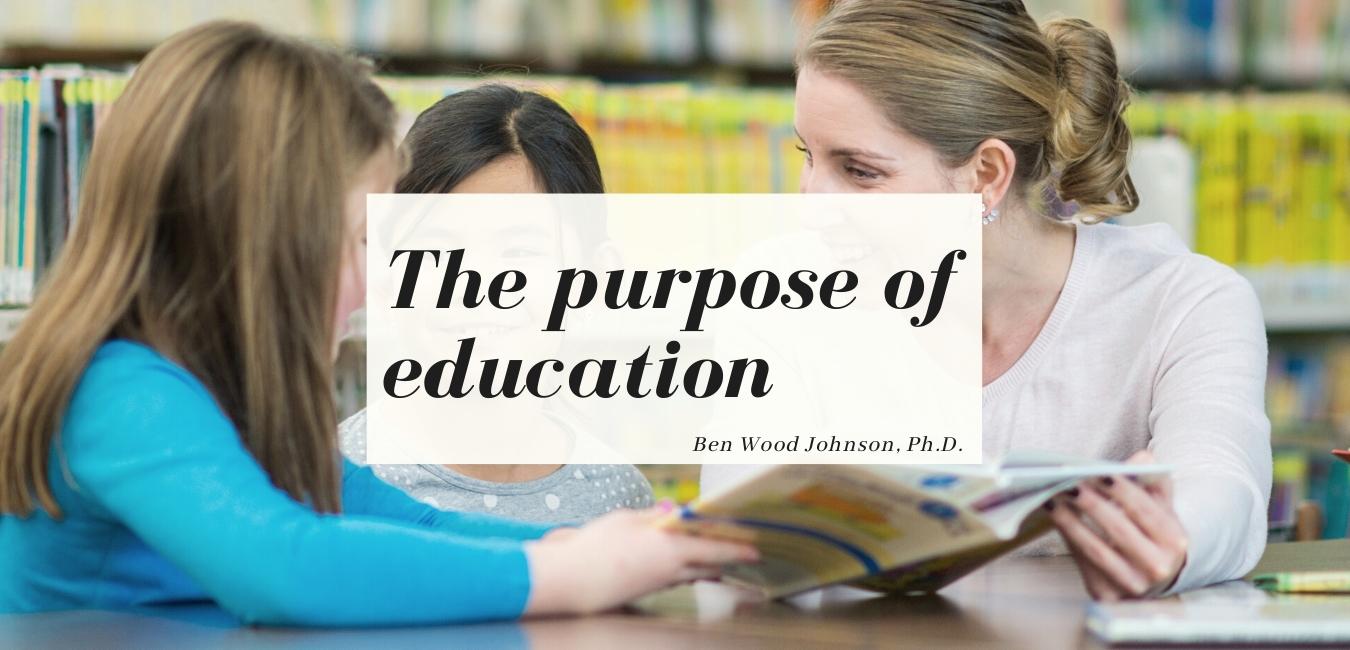Assessing the purpose of education
If I asked you about the purpose of education, what would you answer? Granted, this is an interesting question. But I am not sure that anyone could answer in a way, which might incite others to say: “I agree.”
Education, I would admit it here, is a contested notion. The most brilliant minds could not agree about the concept. Most modern societies do not grasp the underpinning of the rationale for an education. Hence, I could not refute your position, even if it were to be contrary to mine.
I would not find it odd if you were to contest my stance about the notion. In fact, it would not be surprising at all if you were to refute the views I echo in this post. Before you click out of this page, let me clarify what I mean. Let me take a more subjective approach, for there is no consensus in the debate.
A memorable experience as a student
In 2009, I was a graduate student at the Pennsylvania State University (College of Education and Education Policy Studies). I was majoring in Educational Administration/Leadership.
I attended a course about the foundation of education. The class was designed as a seminar. We spent a lot of time debating the concept of education.
Since the beginning of the course, we discussed the need for education in society. We did so for several days. Several students, many of whom worked as school administrators in some of the most successful school districts in the region, argued about the purpose of education. We debated the best way to approach issues related to education.
During our discussion, we debated several issues. For example, we talked about the need for education in modern societies. We examined who deserves the right to an education. In doing so, we revisited the judicial opinions in Brown v. Board of Education, which is a landmark court case about educational equality and segregation.
Our discussions went beyond the function of education. We also discussed issues relevant to school funding across Pennsylvania. We tackled about school reform and other issues.
The debate was interesting. A few students argued that education is a choice. Others contended it is not. Education is a need, some students said. After several minutes of debates, we could not agree on where education should take place.
Students expressed distinct viewpoints about education. We discussed who should be responsible for education. We talked about the role that the government (or private entities) should play in education. We disagreed on whether local, states, or federal governments should be in charge of education. There was no consensus in the debate.
No consensus in the debate
During our discussion, we reviewed several articles about education. But we could not come up with a single answer, which would enable us to clarify the questions that we had posed earlier. We could not agree on how to approach the concept of education.
That experience marked me for a long time. Many of the questions we debated in the course lingered in my mind for many years. Some questions have guided my perspectives about salient educational issues.
Over the years, that experience typified my understanding of realities of education. There is little [to no] consensus in the literature about the notion. People hold different views about education. Others disagree about the need for education in society.
Most understandings about education are in error. Notions that examine the purpose of education are elusive to most observers. But the same is true for academics, educators, and school professionals alike. It is not surprising that there is a lack of consensus in the public discourse.
The book titled The Purpose of Education debates the nature of education. This work examines the notion at length. While the text is informative, it discusses the issues with an open-mind. It explores the problems that often plague educational entities. The text examines individual perspectives about education. It discusses how people perceive the concept. The text reflects on the need for e a universal approach to the notion of education.
Conclusion
There is no question about it; education is a complex notion. The issues it breeds could be hard to pin down. Most people do not understand the nature of the concept. There is always a need to grasp the notion.
What about you? Could you say that you have a good understanding of the purpose of education? Would you say that you have a good sense of the reason you went to school? Could you fathom the reason others go/went [or should go] to school? But do you understand the need for education in your social milieu?
I would admit that these are tough questions. Perhaps you have clear answers. Perhaps you do not. But I hope that you have interesting insights about education. In case you do not, that’s fine.
I would admit that I do not have answers. But we could disagree. If you would like to know more about my approach to education, I recommend you to keep reading my posts.




